The Desert Flower
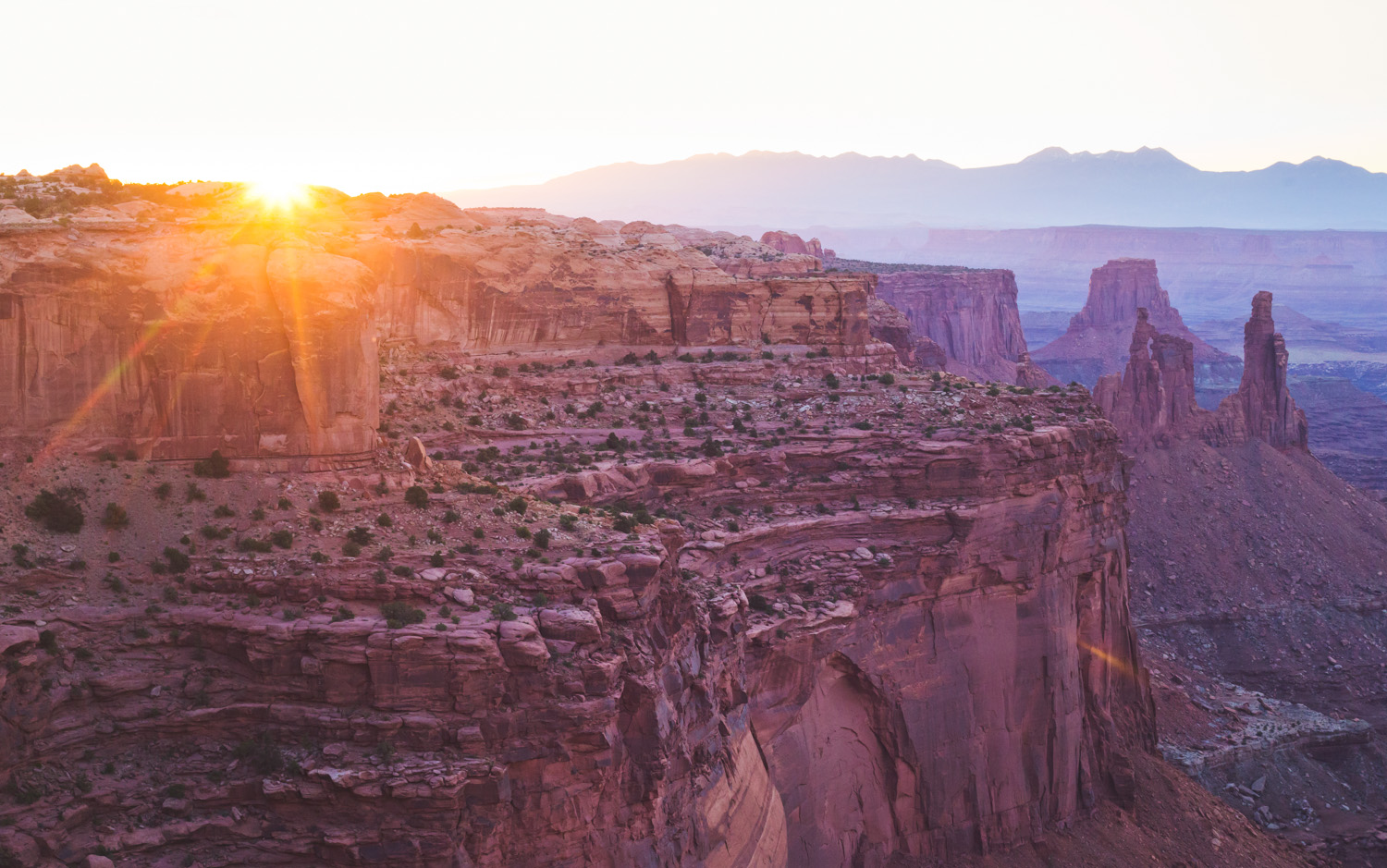
The Desert Flower
By Liz Weber
The openness hit me before anything else. It seemed to hover in the air, expanding the space between the twin beams cast by my car’s headlights.
I had stopped on some empty stretch of highway in Nevada. Or was it Utah? The state boundaries, those imaginary lines marked and painted by man without consideration for the natural contours of the land, had been blown away by the desert breeze a few hundred miles ago. They didn’t seem to matter next to the vastness stretching ahead of me.
A mountain girl first and foremost, I planned a road trip down the coast of California, a jaunt into the desert hadn’t been on the itinerary. Wheeling like the Milky Way spinning overhead, I wondered at what answers, if any, I had collected along the way. Why had I left behind the mountains and a mountain man for uncertainty, empty nights spent in the back of my Toyota, and bitter diner coffee? And lurking beneath that a larger, harder to formulate question: what caused any of us to search out salvation in a landscape practically devoid of life?
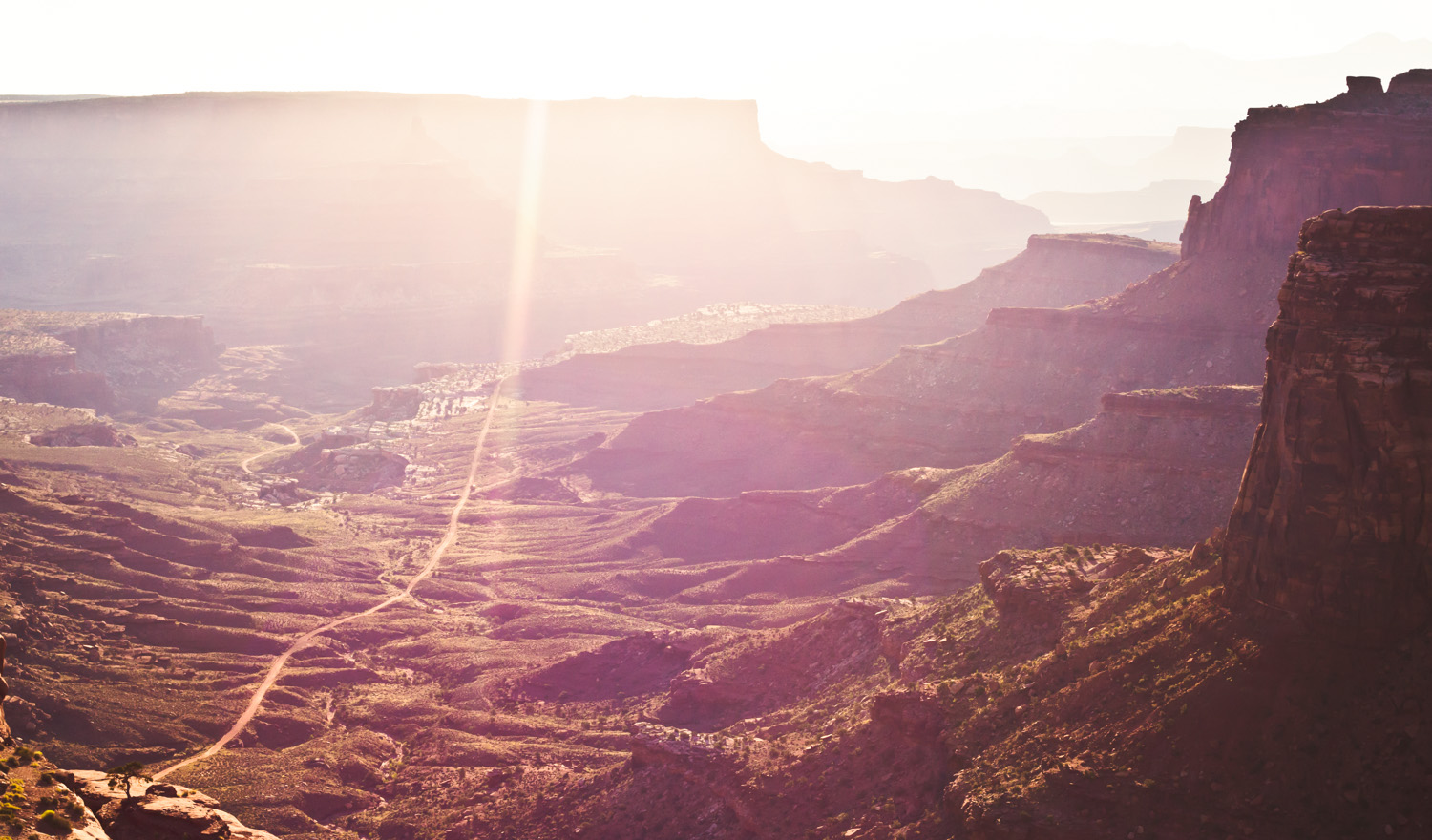
Before I had traveled through the southwest, tasted the dry air, stretched my arms wide and spun beneath the stars, unraveling the mystery of the desert held little appeal. Until a friend told me of a small book, written by a figure that lived his life surrounded by and fighting for those open, desert places. To understand the pull of the place, the sparse mystery, read it, my friend told me.
That book, Desert Solitaire. That figure, Edward Abbey. That friend, a man I had come to love, a sparse mystery that pulled me in.
Shortly after leaving him, I continued my drive down the coast of California. Windows down, warm air streaming in, and hours stretching along the length of the rocky shore, I tried to convince myself this was what I wanted. Aimlessly searching for stories, I would capture memories like old Polaroid photos, grainy, sun-streaked, out-of-focus, but effortless in their sense of timelessness and adventure. I would craft a reality filled with beatniks and explorers, be loved by a lonely traveler and forget the one I was leaving behind.
Before I had traveled through the southwest, tasted the dry air, stretched my arms wide and spun beneath the stars, unraveling the mystery of the desert held little appeal.
Yet, it felt empty. With nothing to fill my days, my mind roamed beyond the twisting roads, picturesque beaches, and resort towns.
These tiny dots on the map all seemed the same, blurring together in a cloud of pretty pastels and manicured beach fronts. As the sun began to set on another day no different than the ones that came before, I passed through a small rundown town set off the 101. With its peeling paint, overgrown grass, and billboards harking back to a previous era, it was clear that this town hadn’t seen the rush of tourists in years. In its heyday, hundreds of families must have driven through, stopping at the small diner, enjoying the novelty of the first family road trip. Now, lost within a hidden bend in the highway, they only see the odd beatnik, lost by a few generations, searching for something unnamable. The town let the wind whip-up the sand, chipping at paint, carrying away the new lost generation as they left sleepy towns for adventures of their own.
From around a hidden corner, from another time, the bookkeeper emerged, prize in hand. “We don’t have many people passing through looking for Abbey. Planning a trip to the desert?”
A small bookstore drew me in, a window front as tattered as the old books overflowing its shelves. A torn sweater, fraying sleeves and bushy white eyebrows all lent an air of wizened apathy to the demeanor of the man behind the counter. Upon hearing my request, he scurried off into the maze of shelves. Around this corner, ducking a precarious stack of romance covers, under a virtual tunnel of Wordsworths and Twains and the odd Kerouac, he disappeared into the depths. Having lost his trail, I marveled at the sheer volume of this little bookstore. In a world that had found his town obsolete, he carried on, collecting his treasures, hoping a lone traveler would wander through, searching for the solace and connection so often found in the words of another.
From around a hidden corner, from another time, the bookkeeper emerged, prize in hand. “We don’t have many people passing through looking for Abbey. Planning a trip to the desert?” Perhaps knowing he wouldn’t receive many customers in the coming days, weeks, or even years, I could sense him longing for conversation.
With a brief exchange of hands and the faint whisper of creosote wafting from the pages, the book rested in my hands.
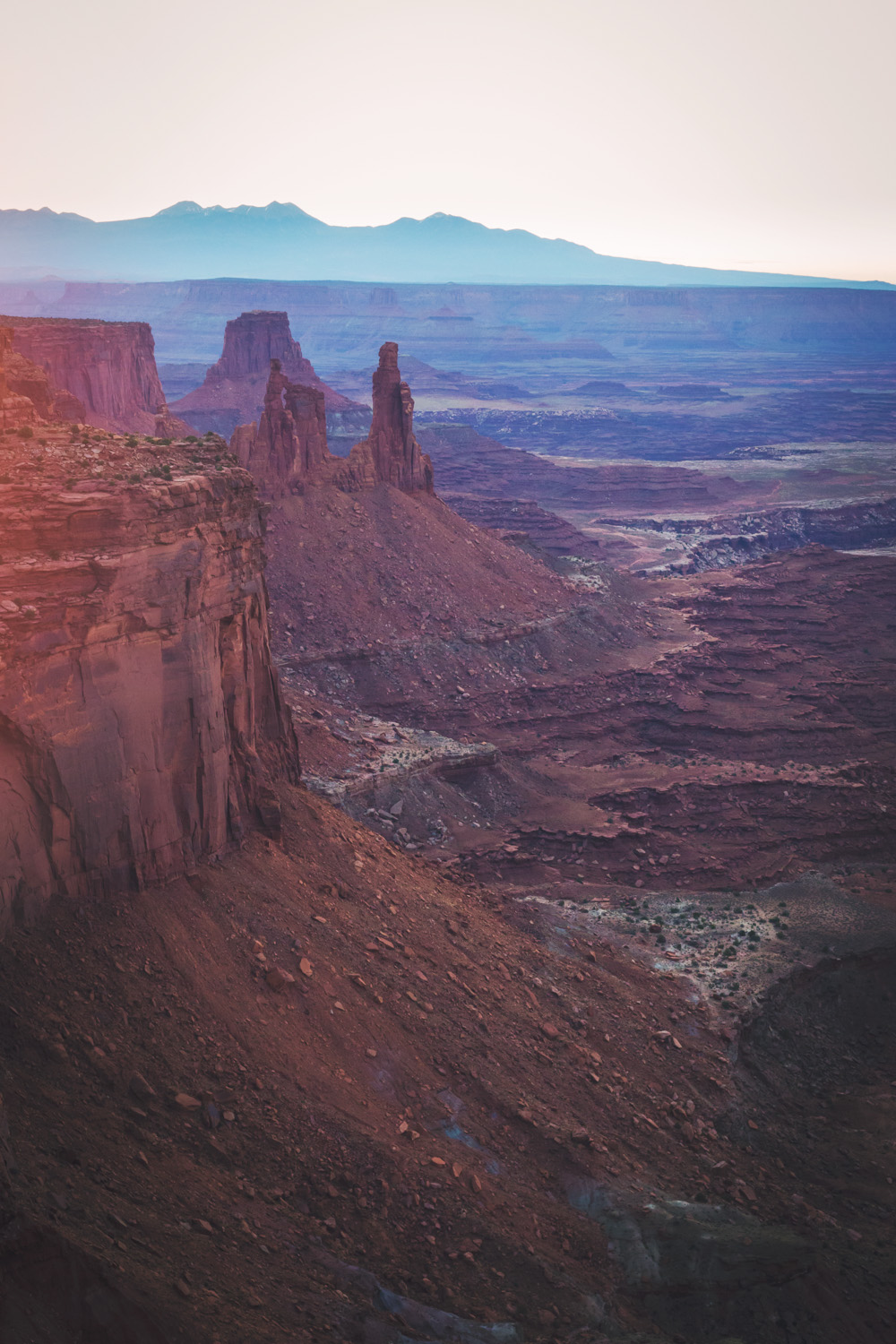
Sitting in a greasy diner, strong coffee sitting cold beside me, I opened the book and leafed through the torn pages. As the hours passed, and the neon lights flickered off, expelling me into the night, I would read the words that had unlocked the mystery of the desert for my friend by the harsh light of my headlamp, cocooned within my sleeping bag. But instead of understanding the pull of the desert, a land that seems to offer nothing but harsh and unforgiving heat, I found myself even more entranced by the mystery.
For so long, I had searched out the alpine mountains, cool glacier lakes, rocky coastlines, and evergreen forests. Why now did I find myself longing for creosotes, sandstone arches, the lonely howl of a coyote, prickly pear cactus, and a land that seemed as long and unending as it was hot?
By the next morning, I had pointed my car east, a map of Utah lying in my front seat, next to my battered copy of Desert Solitaire.
By the next morning, I had pointed my car east, a map of Utah lying in my front seat, next to my battered copy of Desert Solitaire.
I craved those open spaces, burned down to the bare bones of nature. But what did I hope to find? What had other people, Abbey, my friend, nomads, discovered in this place?
Embracing a welling sense of urgency, I drove through the night, into the day, and before I knew it, another starless, night sky was rising to meet me. Sleeping in parking lots and stopping only for harsh, diner coffee, I watched as the landscape slowly opened up and unfolded out my car window. Green gave way to deep red, the days became warmer, and there was nothing to limit the arc of the sun in the sky.
I craved those open spaces, burned down to the bare bones of nature. But what did I hope to find? What had other people, Abbey, my friend, nomads, discovered in this place?
Hitting a stretch of empty, flat road with sand blowing across the lanes, I knew I had made it. Hair streaming out the window, blowing recklessly into my face, I could drive this highway for days and never see another soul. The scent of creosote wafting through the air tasted like freedom.
This was what I needed, what I hadn’t been able to find along the crashing Oregon coast, the towering redwoods, or picturesque beach towns. A boundless landscape so stripped down, it demanded the same of me in return. No Polaroid snapshots. No glossy images of what a life of adventure and love looks like. Real, raw self.
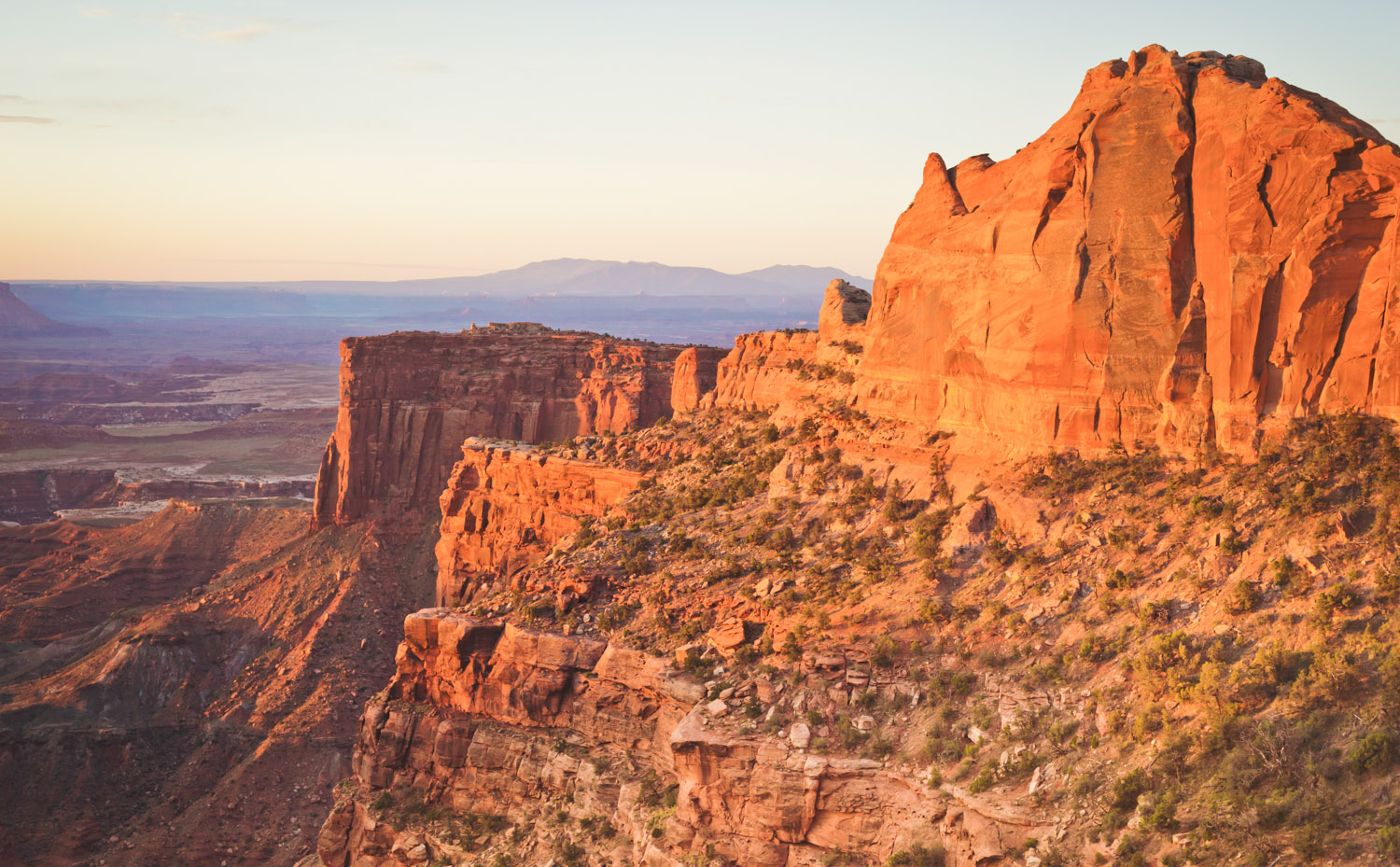
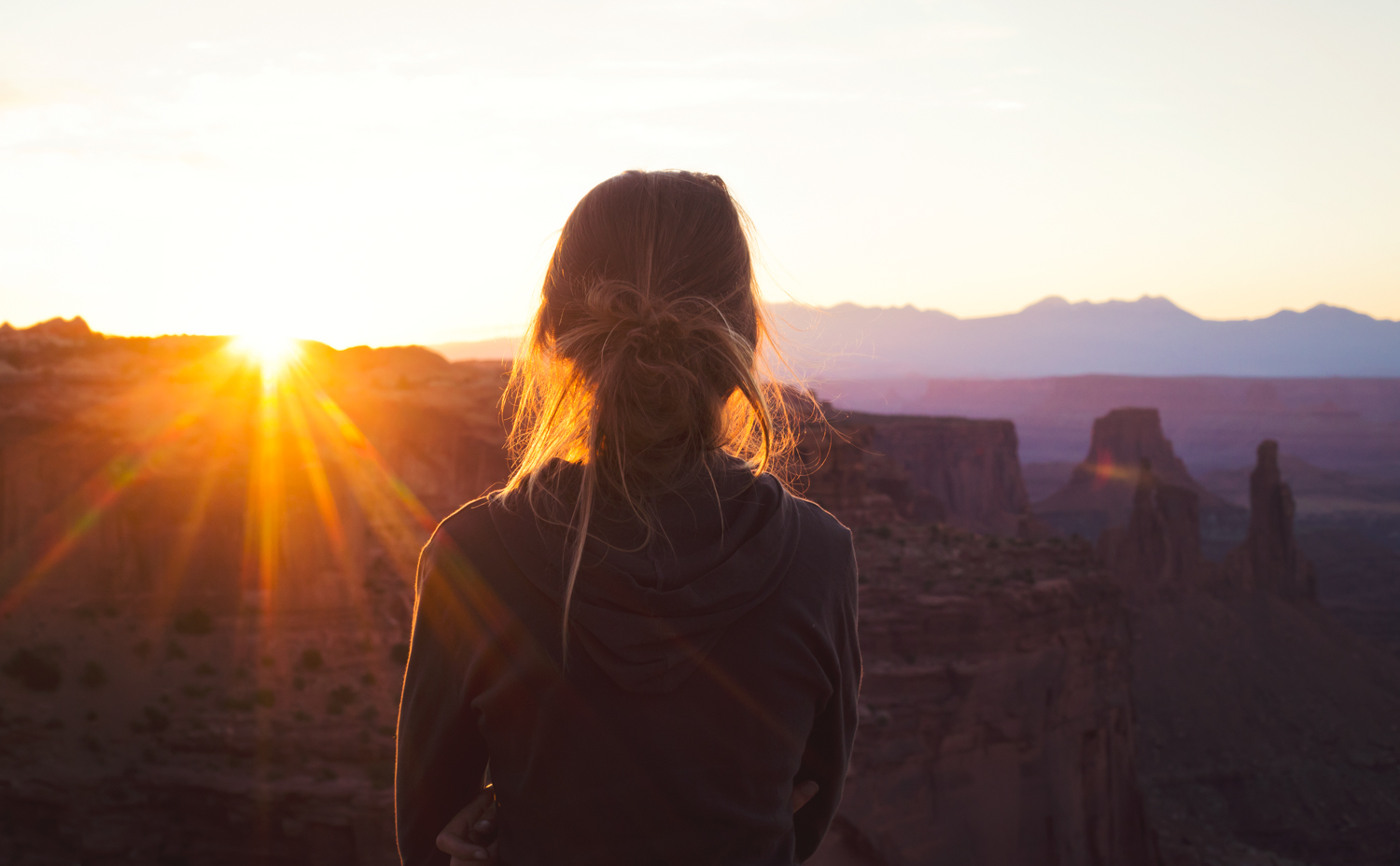
Early on, Abbey notes the similarities between the plants he finds thriving in the desert and of human connection. Like that beautiful rare desert flower, “Love flowers best in openness and freedom.”
What I had craved was space and the independence to love. To throw my arms up in the middle of the desert, spin and spin and spin until I was lost to space and time. To run my hands alongside red, rough sandstone and wonder who, if anyone, had ever experienced this place as I had. To hike and climb and scramble up and over and down and around until I was covered in the red dust of a place whose mysteries were beyond me. To love, not a man I would never truly know or even this wild and raw land, but myself.
Like that desert flower, I needed to learn to love myself in a place so free and open there was nothing to confine me. Not the expectations of another or the overwhelming presence of the mountains.
I needed the freedom to let my strengths fly high and my vulnerabilities and flaws open up. I needed the heat to strip me down, the sand to rub me raw, and the towering sandstone arches to stand witness to my transformation.
Like that desert flower, I needed to learn to love myself in a place so free and open there was nothing to confine me. Not the expectations of another or the overwhelming presence of the mountains.
Where time had slowed to a crawl at my feet, it gained a sense of urgency as my road trip came to a close. Standing beneath the deep pinks and ochres of a desert sunset, golden streaks in my hair, sand coating my skin, and my soul rubbed clean by those desert winds, I said a silent farewell.

As I retraced my journey, the landscape slowly began to close in on itself. The smell of creosote gave way to the faint promise of evergreens and rain. Before the desert was completely lost to my rear-view mirror, I stopped at a small diner. A flickering neon sign in the gathering dusk drew travelers in like moths to the flame, beckoning them to rest on its cracked linoleum seats.
With coffee in hand, I placed Desert Solitaire on the counter in front of me. It was worse for wear since it passed into my possession, a little more sand hidden within the pages, and the promise of adventure lying heavy in its spine.
Flipping easily to an ear-marked page, I read again:”Love flowers best in openness and freedom.”
Flipping easily to an ear-marked page, I read again: “Love flowers best in openness and freedom.” Writing those words deep into my bones, I left the book glowing in the fluorescent lights and the soft din of the diner. I walked out into the night air.
Part fire of a sandstone sunset, part cool glow of an alpine sun at dawn, I was not of the mountains or the desert. A merging of the two landscapes that seemed to echo deep in my soul.
Abbey would find his way into the hands of another love-lost adventurer. And I would keep searching, a little more certain than I had been before, for those lands of openness and freedom.
Liz Weber is a freelance writer currently exploring the wonders of the PNW. She can often be found with wind-blown hair, dog-eared notebook, and too many travel dreams. Follow her journey on Instagram.
Photos by Sam Ortiz. Sam is a freelance adventure photographer based in Tacoma, Washington. Despite years living in the PNW, she remains entranced by the fog-shrouded mountain peaks and misty shores. Follow her on Instagram.
The desert has a special kind of magic.
this peace was so moving and lit beautiful images in my mind. thank you for sharing and giving me a new book to put on my reading list.